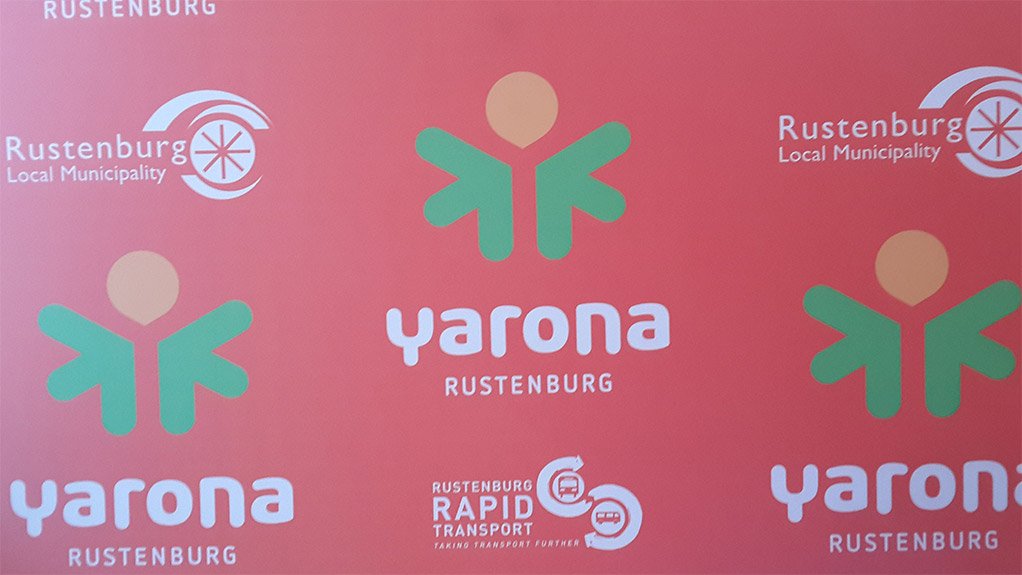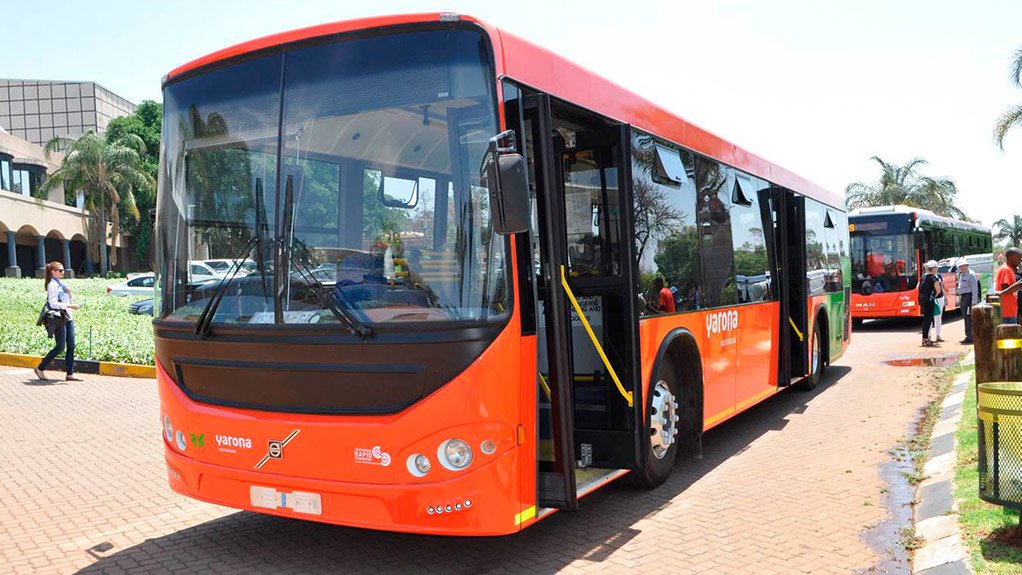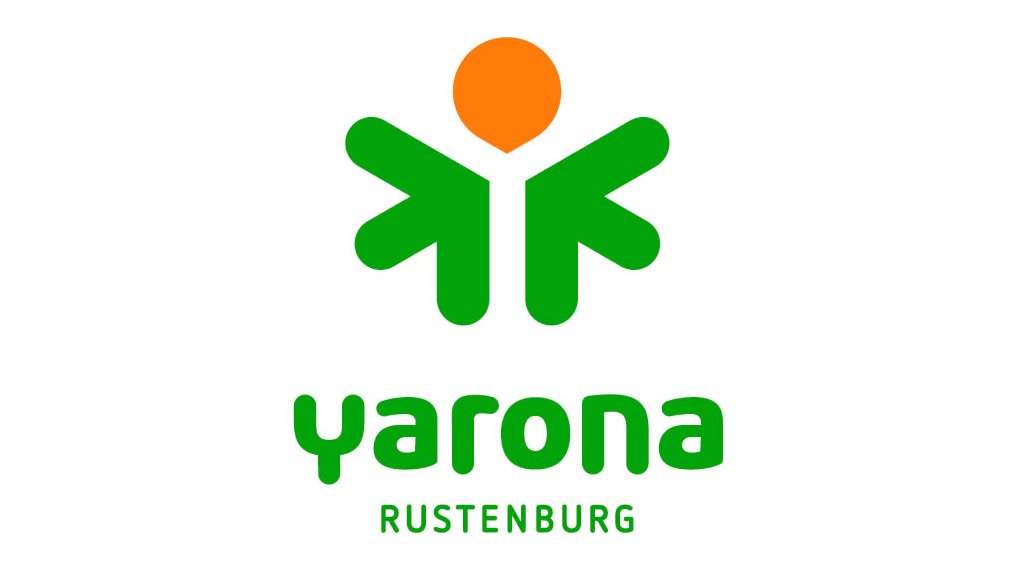Likely to soon become a familiar brand in the city of Rustenburg, the North West-based metropole has, some three years after first announcing its integrated public transport strategy, officially launched the name and logo of its developing R7-billion integrated rapid transport system.
The first phase of the Rustenburg rapid transport (RRT) project would launch in 2016 under the brand name Yarona – a Setswana word meaning “it is ours” – and would service the residents of the Rustenburg municipality through an integrated transport network that offered bus rapid transit (BRT) trunk corridors, direct routes and feeder services.
The total system would, once completed in 2022, service 80% of the 3 500 km2 municipality, offering public transport services to some 200 000 commuters a day, Rustenburg executive mayor Mpho Khunou told Engineering News Online at the brand launch in Rustenburg on Tuesday.
The orange and green Yarona logo was designed to represent the relationship between the commuter and movement and had garnered support from the general public, as well as from various bus and taxi associations in the city, with whom negotiations to formalise contractual arrangements to operate the Yarona bus services were ongoing.
MMC for Planning and Transport Services Amos Mataboge said the brand launch represented an important progression towards the launch of the system’s first integrated transport route in 2016.
“This project is funded with taxpayers’ money and will be operated as a service for all residents, helping to support greater social cohesion by providing safe, efficient and reliable public transport to which all citizens have access,” added Khunou, who outlined that some R1.1-billion had been spent on project construction thus far.
TAXI NEGOTIATIONS
Procurement of the buses for the BRT portion of the network would be managed by the project’s bus operating company, which was formed on behalf of the affected taxi and bus industry.
The Rustenburg municipality and affected taxi and bus operators represented by the Taxi Negotiating Forum (TNF) had regularly gathered around the negotiating table since 2011 to discuss the absorption of the city’s taxi and bus operators into the Yarona network.
A TNF representative told a post-launch media briefing on Tuesday that the industry was initially unsure how it should respond to the announcement of an integrated transport system in Rustenburg, but was ultimately supportive of the project following engagements with their counterparts in Johannesburg and Cape Town, who had been incorporated into similar transport networks.
“On behalf of the TNF, I would like to express our willingness to support the project for the betterment of the city, and we congratulate it on this milestone achievement.
“We are aware that the government owns the road and needs to provide a safe transport system for its citizens. We have no reason not to play a role and support it,” he commented.
Khunou told Engineering News Online that current talks between the parties were centred around the negotiation of an operating licence, which would see taxi associations managing and operating the Yarona network for a 12-year period.
“However, we won’t negotiate endlessly,” he said.
PROJECT PROGRESS
The Yarona network would be anchored by two trunk corridors from which various feeder routes would emanate, ultimately linking the bulk of the city’s industrial, commercial and residential hubs.
Phase 1 would see the R412-million completion of dedicated BRT lanes and stations along Corridor A, or the R104, which would be extended to include additional taxi lay-byes and pedestrian paths.
This construction phase had recently been granted a water-use licence, allowing for work to start on the two bridges that ran over water courses, while the supply of mine waste materials, which provided cost-effective fill for the road construction, had also been renegotiated.
Engineering News Online reported earlier this month that work on the road-over-rail bridge on Corridor B of the project, or the R510 road, was progressing well, with the road expected to be open for use by the middle of 2015.
“The considerable road construction from the taxi rank up to the bridge is also on track for completion by the end of 2014, although it must be noted that summer rains do play a considerable role in road construction schedules,” RRT acting design and construction manager Amogelang Kgoathe said at the time.
The R510 road construction from the rail bridge up to Boitekong turnoff was, meanwhile, also under way and on schedule for completion by the end of next year, in time for the stations to be built and for Phase 1B of operations to start.
The final section of the R510 bus lanes from Boitekong to Kanana also started in July and would include the rebuilding of the Bospoort Dam bridge to make it higher, wider and longer.
“With the start of the latest part of the road construction on the R510, we did have further community engagement over the allocation of jobs. We would like to remind all communities that we remain committed to ensuring that local residents are employed and benefit from the infrastructure investment, but that proper channels must be followed,” Kgoathe noted.
In addition to the roads and station construction programme, the design of the network’s bus depots would also start this year.
EMAIL THIS ARTICLE SAVE THIS ARTICLE
To subscribe email subscriptions@creamermedia.co.za or click here
To advertise email advertising@creamermedia.co.za or click here















